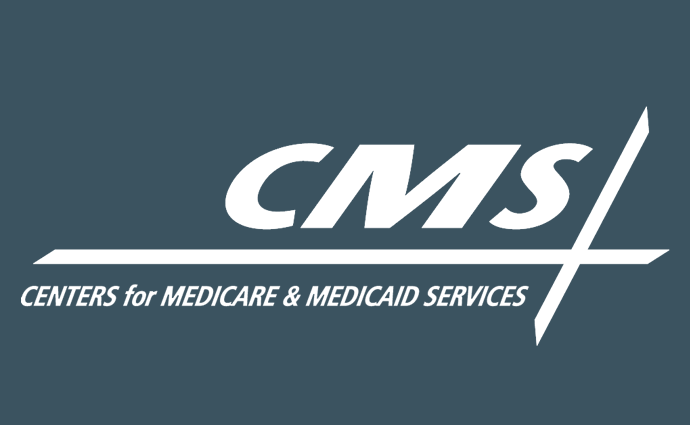CMS Releases Risk Adjustment Advance Notice Early For MA Plans
The notice phases out RAPS data in favor of encounter data and finalizes risk adjustment changes.

Source: CMS logo
- In the first part of its Advance Notice for calendar year 2022, CMS has proposed completely phasing in the CMS-Hierarchical Condition Categories (HCC) for Medicare Advantage risk adjustment, finalizing the switch to encounter data.
The fully phased-in model would use encounter data only in order to report patient treatment and products. For the past three years, plans have been allowed to submit a regulated mix of encounter data and risk adjustment processing system (RAPS) data as they moved toward completely eliminating RAPS data, which is considered less rich than encounter data.
RAPS data consists solely of the diagnoses that providers made for a Medicare Advantage plan’s members. Encounter data, on the other hand, encompasses not only member diagnoses but also records of the services and products rendered.
As a result of the complete phase-in, plans will not be able to supplement encounter data with RAPS information.
These actions are in response to the 21st Century Cures Act, the notice explains.
In addition to phasing out RAPS data, the Act instructed CMS to adjust for patients with multiple conditions and also create diagnosis codes for the risk adjustment model specific to mental health conditions, substance use disorders, and varying stages of chronic kidney disease.
As with encounter data utilization, CMS phased in these changes and 2022 will be the first year that the risk adjustment model fully reflects these alterations.
These changes will cost the federal government nearly $634 million, an impact of less than one percent, CMS projected. The full transition from RAPS to encounter data will have no economic impact.
The agency decided to release the advance notice earlier than usual.
“MA organizations and Part D sponsors will benefit from having information contained in Part I of the Advance Notice earlier in the year so that they have more time to take this information into consideration as they prepare their bids for 2022, which must be submitted by the first Monday in June 2021,” CMS explained in the fact sheet.
The rule is now open to comment and will be finalized by April 5, 2021.
The 21st Century Cures Act has influenced major shifts in the healthcare industry in 2020.
For example, CMS, HHS, and the Office of the National Coordinator (ONC) finalized the next phase of the interoperability rule which will go into effect on January 1, 2021.
It forbids information blocking, requires that payers use an application programming interface (API) to make personal health data available to patients, and requires payers to establish an accurate in-network provider directory available through an API.
Public payers will need to prepare for the interoperability rule in a number of ways. They must partner with a vendor with a compliant API or create their own APIs, inform members about how to pick a trustworthy API, eliminate any information blocking procedures, and potentially add vendor-related costs to their bids for the coming year since these can be covered.
The healthcare industry is also bracing for the impacts of the 21st Century Cures Act’s price transparency rule. The rule would go into effect on January 1, 2021 and would cost hospitals $400,000 to $500,000. It has caused some friction between payers and providers as some experts call on payers to be more transparent about out-of-pocket healthcare spending.
CMS also exercised the Act’s regulations regarding adding additional conditions to the Medicare Advantage risk adjustment model when it expanded coverage for ESRD patients. The agency’s move drew mixed reactions from the payer industry experts who supported expanding coverage for ESRD patients but considered the methodology flawed.
CMS paired the first part of the advance notice with an announcement that it would rescind the Medicaid Fiscal Accountability Rule.
